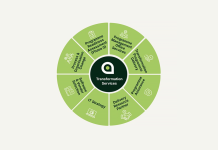HM Land Registry has released its Annual Report and Accounts for 2024–25, which show significant improvements in digital transformation, service delivery, and fraud prevention across the property registration sector in England and Wales
The Annual Report and Accounts for 2024–25 outline how the organisation has continued to modernise its systems and operations to better serve the needs of homeowners, developers, conveyancers, and the broader property market. With over £9 trillion worth of property assets dependent on the integrity of HM Land Registry’s records, its work plays a critical role in supporting the UK economy.
Faster registrations and greater efficiency
One of the best achievements this year highlighted in the Annual Report and Accounts for 2024–25 is the improvement in registration processing times. By March 2025, the organisation had surpassed its target to process 95% of all applications within 12 months of submission. This has been enabled by a dual focus on improving internal efficiency and expanding digital services.
Efforts to quicken services have led to faster decision-making in property transactions, helping reduce delays for buyers, sellers, and legal professionals. HM Land Registry has confirmed that work will continue to reduce processing times further, particularly for complex or delayed applications.
Enhancing digital capabilities
A key part of the organisation’s transformation has been the rollout and expansion of digital tools. The Local Land Charges Register project reached a major milestone this year, with 110 local authorities having successfully transferred over 7.2 million records to the digital platform.
This transformation enables users to instantly access local land charge search results in migrated areas, reducing what once took days or weeks to a matter of seconds. By providing earlier access to crucial information, the new system is helping accelerate both home buying and planning decisions.
HM Land Registry’s digital datasets also continue to provide vital insight into property trends and risks. Used by over 3,000 data users each month, the data supports asset management, development planning, and risk analysis. It also underpins the UK House Price Index, an essential tool for government fiscal forecasting.
Using AI for more intelligent processing
In 2024, the organisation’s use of artificial intelligence (AI) was recognised at the national level. A new AI-driven document comparison tool has improved the speed and accuracy of handling complex applications. By automating time-consuming comparison tasks, the system has reduced processing times and freed up staff to focus on more complicated cases.
This innovation is part of a bigger effort to integrate advanced technology into HM Land Registry’s operations, resulting in a more modern and responsive public service.
Combating property fraud
In a strong display of public protection, HM Land Registry’s counter fraud group prevented more than £59 million worth of fraudulent property transactions in 2024–25. This was achieved through a mix of enhanced fraud detection techniques, cross-agency collaboration, and public education initiatives.
Efforts to improve fraud detection and prevention remain a key focus, ensuring that property records are accurate, secure, and trusted.
The Annual Report and Accounts for 2024–25 marks another year of significant progress for HM Land Registry. Looking forward, the organisation is set to publish its Strategy 2025+ in the autumn, which will outline its long-term plans for safeguarding property rights, enabling market growth, and further developing its digital public services.











